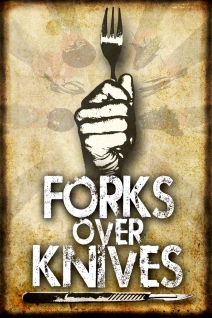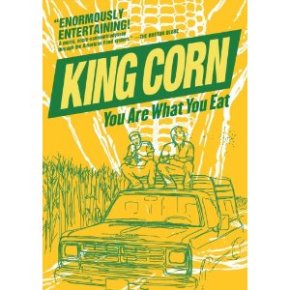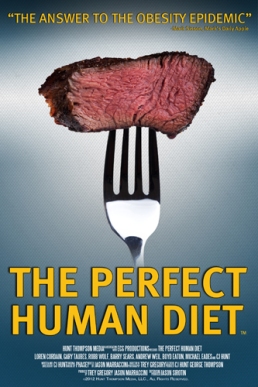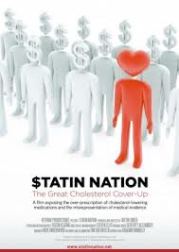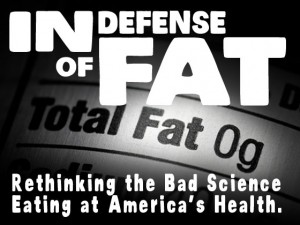I recently watched a great documentary on Netflix called “Hungry for Change.” Based on the book by the same title, the documentary does a tremendous job of inspiring the viewer to take personal health into one’s own hands. While documentaries of this nature are starting to “crop up” (see what I did there?) more often these days, this one seems to do a something the others do not, and that is to stay extremely simple. While I personally found myself wishing for more “science” the entire time, by the end I realized they had intentionally left this out–instead relying heavily on common sense, logic, and anecdotal evidence. What results is a very compelling and inspirational–I’d even say empowering–movie. You walk away from the film feeling like you really can take control of your health with a few small steps and some patience. Their biggest points are:
- Processed food is even worse than you think it is. Did you know MSG can hide behind over 50 different names on an ingredients list and is used to enhance the flavor of over 80% of processed foods? How about that aspartame causes headaches and cancer?
- Great advice: don’t try to go 100% changed all at once–make a single, sustainable and healthy choice, then another, then another. Don’t set yourself up for failure.
- Scientifically proven fact: certain combinations of sugar and certain additives are addictive–and the food companies are well aware of this. This essentially makes processed foods a drug. The movie makes an apt comparison to the cigarette industry and their inclusion of addictive nicotine to increase sales to the additives and sugar used by the food industry to increase sales. You can’t sell drugs or alcohol to a child, but we sell them sugar. No different and yet totally legal.
My biggest gripe withe the movie is their emphasis toward the latter third on juicing as well as a veiled stab at eating animal protein. The reason I’m against juicing is that it is simply so much more ideal to actually EAT the vegetables and fruits. Juicing them increases your sugar intake, and you miss out on all the dietary fiber. Further, although they don’t come right out and say it, the preponderance of phrases like “vegetable-based diet” hint at the movie’s Vegan/Vegetarian stance. To their credit, it is left relatively understated–their message about processed foods being their primary concern. Overall, I highly recommend this film–especially if you have Netflix and can watch for free.
While the documentary Forks Over Knives is very inspirational and informative, it is unfortunately littered with incorrect information, which has been debunked many places, including here. The biggest problem with Forks over Knives is that the backbone of their argument for a Vegan Diet is based entirely on the famous China Study, which has been debunked here and here, among many other places. Despite its flaws, the underlying message of the movie represents a watershed moment in my own personal life, ironically inspiring me to go Paleo. While I disagree with their conclusion we must eliminate all animal based foods, I agree with their admonition that Food is Medicine.
Then there’s King Corn, also available on Netflix. This movie will not entertain you–it will make you angry. Despite this, it is a must-see documentary which will open your eyes to something you already know but don’t want to think about: our food industry is driven more by money and politics than it is by science. This even comes down to USDA recommendations and, as a result, what is fed to children in schools every day. Watch, but be ready to hug someone you love afterward.
I can’t say enough about this movie. Go watch it. No, it’s not free. I bought it on iTunes but you can stream on Amazon for $4 using this link here. While not as strictly entertaining as movies like Hungry for Change or Forks over Knives, this movie presents the most compelling case for the Paleo Diet I’ve ever seen. It’s a bit like reading Robb Wolf’s The Paleo Solution or Dr. Loren Cordain’s The Paleo Diet in documentary form.
Main points which stick out to me:
- Compare herbivorous animals’ GI tract with that of carnivores’ and you will see our own system is obviously like other carnivorous animals and clearly meant to eat meat.
- Going to the fossil record (the movie goes out to dig out sites and interviews paleontologists) they have actually broken down and analyzed the bones and can ascertain how much (and what type) of food people ate 100,000 years ago…50,000 years ago…10,000 years ago…and can see in onset of chronic diseases, diabetes, cancer, and autoimmune issues with the onset of agriculture and the introduction of wheat into our diet, and then obesity (which arrives with the onset of readily available sugar).
Of all the movies on this list, I recommend this one the most.
The last movie I’m going to mention is one I haven’t even watched yet. It’s called Statin Nation. Jason Seib, contributor to Everyday Paleo, has called this the single most important film any American could be watching right now.
This is from the movie’s website:
We are told that cholesterol is a major cause of heart disease. At least 40 million people are currently taking cholesterol-lowering medications, known as statins, and millions more people are avoiding foods that contain saturated fat and cholesterol.
The basic idea is that dietary saturated fat raises cholesterol levels, and these two substances somehow clog-up our arteries, causing a heart attack. This idea is often referred to as the diet-heart hypothesis.
However, a numbers of doctors and researchers have been challenging this hypothesis for decades, and the latest heart disease statistics reveal some alarming facts. Such as:
● People with high cholesterol tend to live longer
● People with heart disease tend to have low levels of cholesterol
● Cholesterol-lowering of a population does not reduce the rate of heart disease
In addition, despite their widespread use, and description as “wonder drugs” statin medications do not extend life for the majority of people who take them.
Cholesterol-lowering has become a huge global industry, generating at least $29 billion each year. Have the facts about heart disease, cholesterol and cholesterol medications been distorted by pharmaceutical companies and food manufacturers keen to increase their profits?
If the focus on cholesterol has been a mistake, then the greatest cost is associated with the lost opportunity to tackle heart disease.
I also must mention a documentary still in the works called In Defense of Fat. While still in production, this movie will be addressing the long-standing misunderstanding (awkward phrasing there) that fat makes people fat–it does not. Excessive sugar makes people fat. I highly recommend you head to their site, like them on Facebook, follow on Twitter, and all that other good stuff–so you know how their progress is coming. I expect teaser clips before not too long.
—————————————————————————————————
If you watch any of these, I’d love to hear your thoughts! Leave a comment, send me a tweet, or just shout really loud and maybe I’ll hear you.
Happy Hunting!

